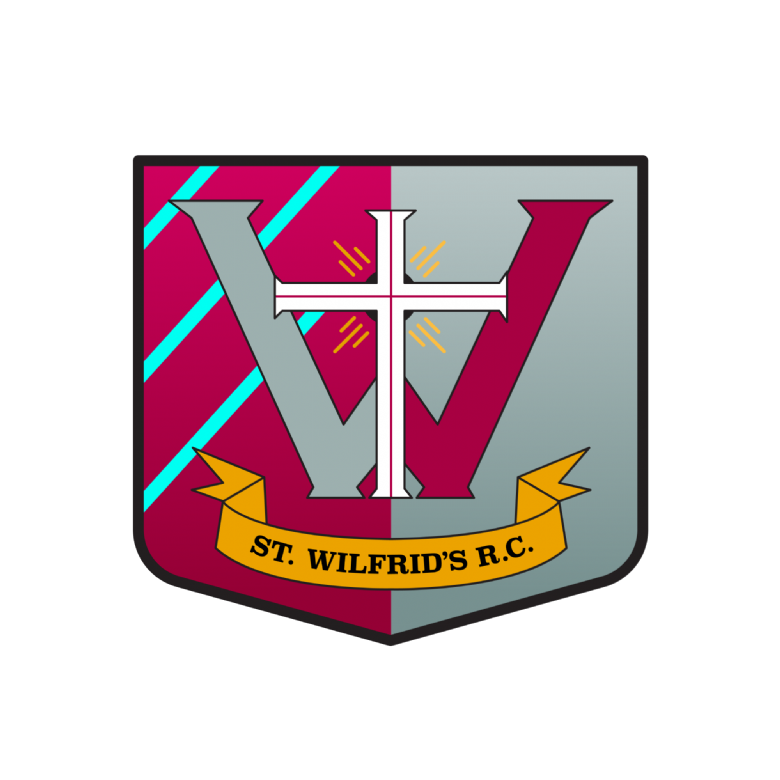Computing
Subject- Computing
Subject Leader- Miss Burke
Introduction
Why am I passionate about computing?
As an educator, there is nothing better to see than the face of a student light up when they have solved a big problem, be it fixing a bug in their code, managing to get a robot to follow a line around the floor, or making a sprite in their game do exactly as they wanted.
Computing can be hands on, it can breed resilience. It develops problem solving skills, and it opens a student’s eyes to the digital world. This can engage, enthuse and cause a real spark in students.
Vision for the subject
At St Wilfrid’s Catholic Academy we have a clear and simple vision: the children should be online-safe, online-inspired and online-confident.
Computing is an integral part of our everyday life and will play an immeasurable part in our children’s futures. At St Wilfrid’s Catholic Academy we will provide all of our children with the skills, creativity and enthusiasm to live and thrive in a world increasingly dependent on computing. As computing technology underpins today’s modern lifestyle it is essential that all pupils gain the confidence and ability that they need in this subject, to prepare them for the challenge of a rapidly developing and changing technological world.
Intent
At St Wilfrid’s, we believe that computing is an essential part of the curriculum; a subject that not only stands alone, but also integrates with all parts of all learning.
Through teaching computing, the school aims to equip our children to use computational thinking and creativity to understand and change the world. We believe that children should be at the forefront of new technology, with a thirst for learning about what is out there. We aim to deliver computing lessons that inspire children, and will help to develop a range of skills and concepts in the modern computing curriculum. Our children will be taught computing in a way that will allow them to participate effectively and safely in the digital world, not only during their primary education, but also beyond.
Implementation
The school focuses on developing the skills necessary for children to be able to analyse problems in computational terms. We will explore their attitudes towards computing and its value to them and society in general.
Computing is an integral part of learning in the Foundation Stage. This will be incorporated in everyday learning through use of technological hardware. This will also be incorporated through developing children’s ability to follow and create instructions and directions.
In KS1, the children will begin by learning what algorithms are, how to implement them as programs on digital devices and how programs are executed using unambiguous and precise directions. They will learn how to create and debug simple programs and predict program’s behaviour. They will also learn how to use technology purposefully to create, manipulate, store, organise and retrieve data. Online safely is paramount at St Wilfrid’s; children will be taught how to use technology safely and respectfully in an Online Safety unit on a yearly basis.
In KS2, children will begin to look more closely at programs and decide how they can be debugged. Our children will begin to use logical reasoning to predict the behaviour of simple programs. We will introduce the concepts of designing, writing, and debugging programs that accomplish specific goals.
In addition, they will understand how computer networks, including the internet, work, having the opportunity to learn about communication and collaboration with the use of technology.
Lessons at our school will be taught in an engaging way to stimulate learning and promote computational thinking, through the Purple Mash Scheme of work. As the children move into KS2, they will be able to select, use and combine a variety of different software to design and create a range of programs that have a specific purpose.
Impact
By the end of their time at St Wilfrid’s, children will be digitally literate and will be able to join the rest of the world on its digital platform. They will have developed computing capability in finding, selecting and using information. They will be able to use computing for effective and appropriate communication and will understand the risks involved with communicating online. Children will also be able to create and debug algorithms and deliver programs and applications.
Computing and computational thinking is now a way of life and our children will be readily equipped for the future, with the necessary skills to progress in an increasingly digital world.
